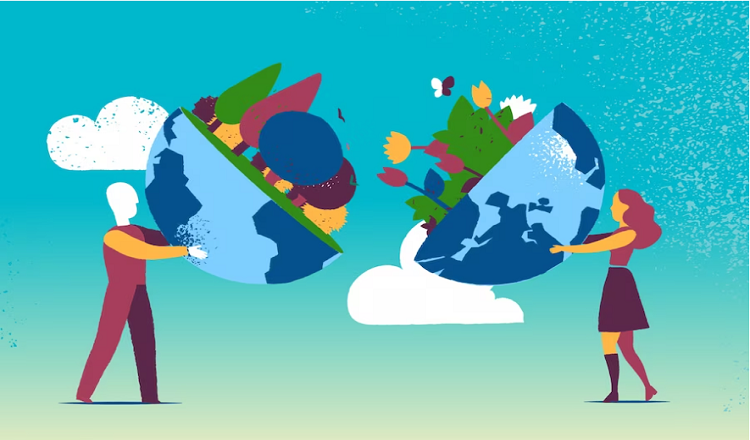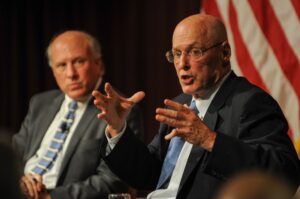Global recession what are the causes and how to cope

The global recession is a popular topic of conversation right now, and economists and other experts are making predictions about how long-lasting its effects will be on the world economy. The current outbreak has made things worse, causing a lot of people to lose their jobs, businesses to close, and economic problems all over the world. In the United States, the recession has hit hard and hurt millions of people’s lives and ways of making a living.
But even though things look bad, there is still hope. People and companies can weather the storm and come out stronger on the other side if they know what to do and how to do it. So, this blog comes into play. In this piece, we’ll talk more about what caused the global recession and how it’s affecting the US economy. We’ll also give you help on how to deal with the problems caused by the recession, whether you’re an individual looking to better manage your money or a business owner trying to adapt and stay in business in a tough economy.
So, if the current state of the economy is making you feel worried or stressed, don’t worry; we’ve got you covered. By the end of this piece, you’ll know more about what caused the global recession and what you can do to get through it. So grab a cup of coffee, kick back, and let’s get started!
What does “Global Recession” mean?
A global recession is a big drop in the economy that happens in many places around the world. A national recession only affects one country or area. A global recession, on the other hand, causes the economies of many countries to slow down at the same time. This causes a big drop in trade, investment, and jobs around the world.
The COVID-19 pandemic is what started the current global recession. It has messed up supply lines, travel, and consumer demand all over the world. But there were things going on behind the scenes that made the global economy more sensitive to the shock of the pandemic. These things included rising debt levels, trade tensions, and slower growth around the world. These things led to a fragile global economy, which was made worse by the pandemic and the lockdowns and limits that came with it.
Why the world is in a recession
There are many different things that led to the current world recession. The COVID-19 pandemic was what started the recession. It was a sudden shock to the world economy that caused many people to lose their jobs, businesses to close, and consumer demand to drop. But this shock was made worse by economic problems that were already there, like rising debt levels, trade issues, and slowing global growth.
The financial crisis has had a big effect on many businesses and industries in the US, especially the financial sector. The crisis was caused by a number of things, such as loose loan standards, taking too many risks, and the rise of more complicated financial instruments. The result was a big drop in the economy, which hurt the home market and led to a lot of foreclosures and bankruptcies. The crisis also had an effect on other industries, like manufacturing and retail, which saw less spending and investment from consumers. The financial disaster had a big effect on the US economy, and we are still feeling its effects today.
Strategies for coping for individuals
People’s personal finances in the US have been hurt by the current global slump in a big way. Many people have lost their jobs, had their incomes go down, and feel less secure about their finances. To deal with the effects of the recession, people need to learn new ways to handle their money and form new habits.
People can deal with hard times by making a budget, saving money, spending, and finding new ways to make money. A budget is an important tool for handling money during a recession because it helps people keep track of their spending and figure out where they can save money. Saving is also important because it helps you build up a cash cushion for emergencies or unplanned costs. People can grow their wealth over time by putting money into stocks, bonds, or real estate. Lastly, finding new ways to make money, like freelance work or a side business, can give you more ways to make money and make you more financially stable during a slowdown.
How small businesses can deal with problems
Small businesses have been hit hard by the current global slump. Many are dealing with falling sales, less demand, and problems in their supply chains. In order to deal with the effects of the decline, small business owners need to try new things and change with the times.
Small businesses can deal with tough times by cutting costs, diversifying, and finding new markets. Some ways to cut costs are to lower overhead costs, renegotiate contracts with suppliers, and reduce the number of employees. Diversification is also important because it lets companies try out new goods or services that can add to what they already offer. Small businesses can get more customers and make more money by finding new markets. For example, small businesses can think about exporting their goods or services to new markets or teaming up with other companies to reach new customers. By using these ways to deal with a recession, small businesses can improve their chances of staying in business.
What the government did about the recession
During a recession, the government plays a key part in easing the effects on the economy and keeping it from getting worse. For example, the government can use monetary policy, fiscal policy, and regulatory measures to boost the business.
In response to the current recession, the US government has taken a number of steps to help the economy, such as passing a number of stimulus packages, lowering interest rates, and giving businesses and people financial help. The government has also put in place rules and regulations to keep financial markets stable and stop a financial collapse. There will be more oversight of financial companies, and new rules will be put in place to stop people from taking too many risks. The things the US government has done have helped to lessen the effects of the recession and help the economy get better.
Conclusion
In the end, the global slowdown has had a big effect on the US economy, causing growth to slow, unemployment to rise, and the economy to be less stable financially. Several things, like the global financial crisis, trade issues, and the COVID-19 pandemic, led to the recession.
People and companies can deal with the effects of the recession in a number of ways, such as by making a budget, saving, investing, diversifying, and finding new markets. Individuals and companies can use these strategies to better manage their money, become more resistant to economic shocks, and adapt to a changing economic environment.
The US government has also done a lot to fight the recession. It has used a variety of policy tools to boost the economy and keep it from getting worse. The steps the government has taken have helped the economy get back on its feet and stabilised the financial markets.
Overall, the global recession has caused a lot of problems for the US economy and its people, but people and businesses can take steps to deal with the effects and build a stronger and more stable financial future.
Read More You May Like:







